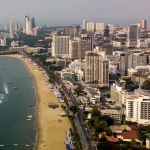Ambulance services are supposed to save lives, however, these life saving vehicles have become the cause of many deaths in Ghana.
In past years, emergency healthcare system had literally been non-existent as the Ambulance Service could only boast of a handful of functioning vehicles and emergency medical technicians.
Ghanaians finally heaved a sigh of relief when President Nana Addo Dankwa Akufo-Addo secured 307 ambulances and distributed for use by all 275 constituencies in Ghana to augment operations of the National Ambulance Service.
However, the ambulances service are unable to function properly due to its operational challenges such as inadequate supply of oxygen and fuel.
Many lives were lost because the ambulance services have no regular stream of fuel to move vehicles on a rescue mission.
A recent incident which has sparked public outcry is the 31-year-old nursing mother, Augustina Awotwe who lost her life because the ambulance team in Fijai, in the Western Region, had asked for GHS600 to take her from the Holy Child Catholic Hospital to the Korle-Bu Teaching Hospital in Accra.
The husband’s inability to raise the amount on time led to the delay that eventually caused her death.
What this means is that poor folks in some parts of Ghana have to cough up amount of money if they needed the services of the state ambulance outside their constituency. These were the same ambulances which were packed for months and paraded in front of cameras in a huge publicity stunt.
It is rather unfortunate that the Chief Executive of the Ambulance Service, sought to rationalise that which is indefensible.
Prof Ahmed Nuhu Zakaria, who took his turn before the ad-hoc committee constituted by Parliament investigate the death of Augustina noted that although their services are supposed to be free, resource constraints have led them to charge patrons to cater for fuel.
“Because it was around the festivities, we were told they had exhausted their fuel. A communication went to the hospital that they didn’t have enough fuel, therefore they will need GH₵600 support for fuel.”
But how can an emergency service like an ambulance not be grounded because of Christmas holidays and some purported activities which the ambulance undertook?
Even if that is so, why will the ambulance team take off, as if to send the patient to Korle-Bu, only to return back to the transferring hospital, which eventually paid for the fuel? If there was no fuel, couldn’t they have called the hospital than to drive back?
Their ability to drive back shows they could have moved forward and this death could have been prevented.
This is sad.
The attempt to cover up what actually happened reveals the ineffective running of the ambulance service.
Should the ambulance service be at a patient’s cost?
The operations of the ambulance service are free and funded solely by the government as a public good, however, resource constraints have led them to charge patrons to cater for fuel.
One could argue that the ambulance service has a responsibility of ensuring patients get the needed emergency care , whilst the patient have the responsibility of paying for the service.
But is it right for people in need of emergency care to fuel the cars to get care when we know that each year government releases huge sums of money to cater for these expenses?
Well contrary to claims that the ambulance service lacked fuel to transport patients, GOIL is regularly and adequately resourced to provide fuel coupons for the ambulance service. This was disclosed in a special Performance Audit of the Auditor-General.
Member of Parliament for North Tongu, Samuel Okudjeto Ablakwa who shared this report disclosed that documents intercepted from the Akufo-Addo Presidency confirm that between January and December 2021, the Presidency paid GOIL GHS5,174,600.00 in two tranches of GHS3,083,550.00 and GHS2,091,050.00 to supply fuel to the National Ambulance Service for free ambulance services to citizens.
The report also revealed that a shocking 50% of the payments by citizens as demanded by the staff of the National Ambulance Service for fuel are NOT used to purchase fuel; instead, those collections are scandalously diverted for discretionary items such as staff funeral support, purchase of microwaves, stationery, detergents, cost of photocopies and for ‘staff motivation’.
Should this rot continue, many will end up dying especially if they are unable to fuel the ambulance as was the case of Madam Augustina Awortwe.
Government ought to be widely awake to put an end to this canker.
















